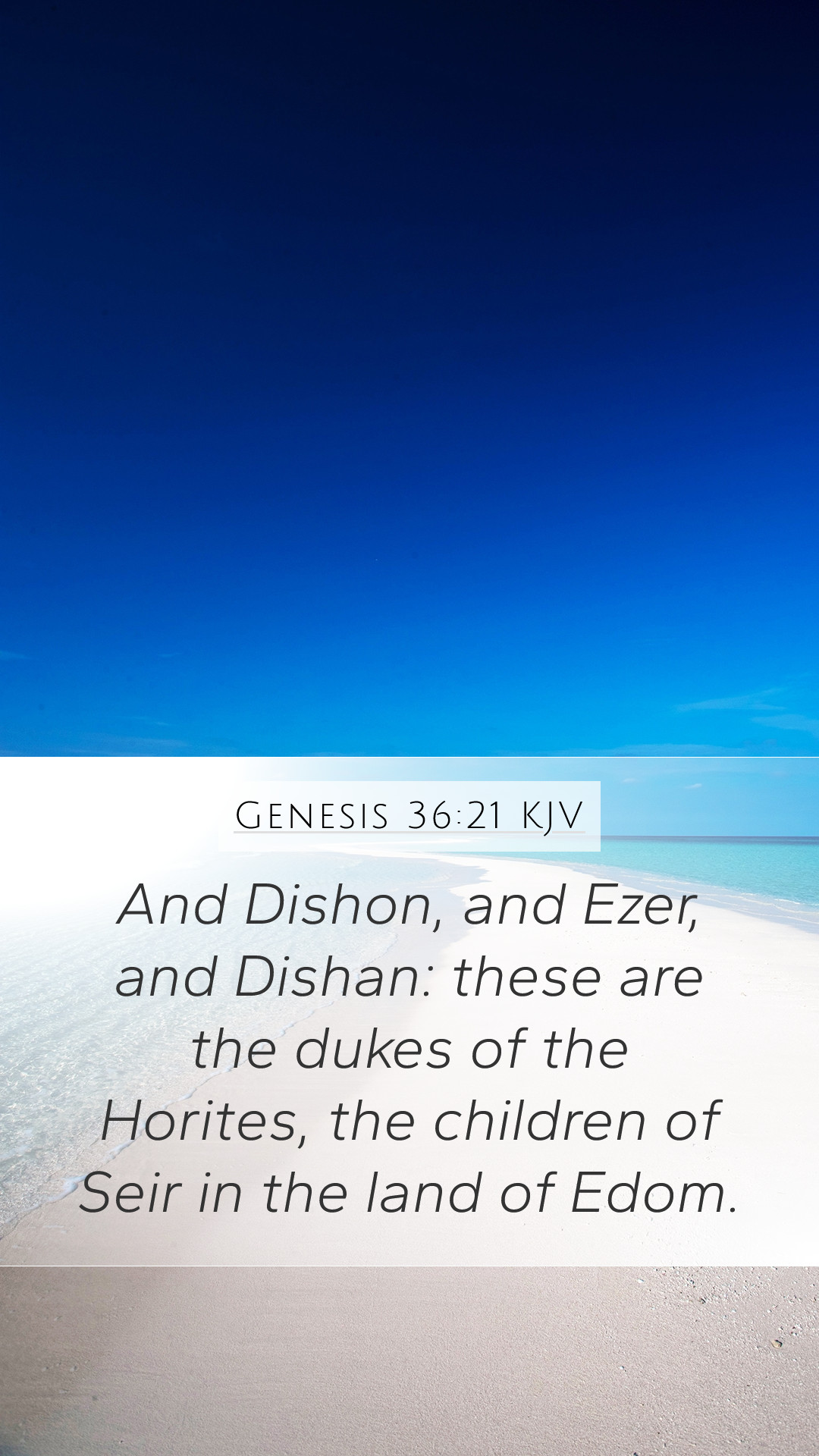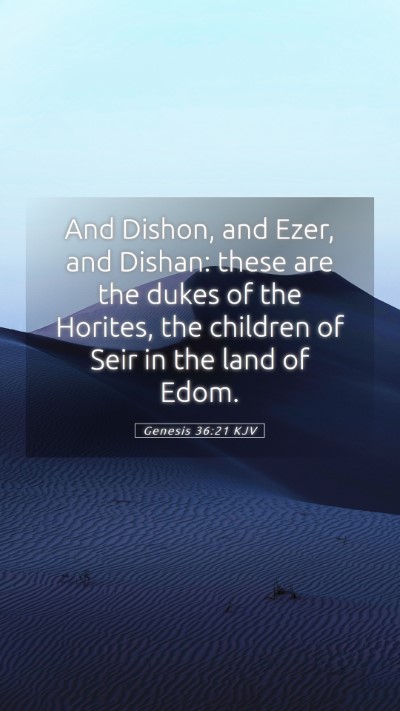Understanding Genesis 36:21
Genesis 36:21 states:
"These are the sons of Dishon: Hemdan, Eshban, Ithran, and Cheran."
This verse is a part of the genealogical record of Esau, which serves to highlight the lineage and descendants of the Edomite people. To grasp the full meaning of Bible verses like this one, a detailed Bible verse commentary is invaluable. Below, we explore the verse through insights gathered from established public domain commentaries.
Contextual Analysis
This passage appears in the broader context of Genesis 36, which outlines the genealogy of Esau and his sons. Understanding this genealogical lineage is crucial for several reasons:
- Historical Significance: Esau's lineage plays a pivotal role in the developing history of the Israelite people and their neighboring nations.
- Cultural Implications: The Edomites, descended from Esau, had significant interactions with the Israelites, making their genealogy important for understanding conflicts and relationships in the biblical narrative.
- Theological Themes: The distinction between the descendants of Jacob (Israel) and Esau (Edom) illustrates the themes of election and divine purpose prevalent throughout the Scriptures.
Scholarly Insights
Matthew Henry’s Commentary
According to Matthew Henry, the genealogies in Scripture, such as the one in Genesis 36, often indicate God’s providential care and His unfolding plans through families and nations. This passage points to the significance of Esau's descendants and the implications of their existence as part of God’s larger historical narrative.
Albert Barnes’ Notes
Albert Barnes adds that the names listed—Hemdan, Eshban, Ithran, and Cheran—may carry meanings related to their character or destinies. Conducting a scripture analysis of individual names can yield deeper insights into how these figures might represent broader themes in the Bible, including conflict, survival, and identity.
Adam Clarke’s Commentary
Adam Clarke emphasizes the importance of recognizing the Edomites' role in Scripture. Their lineage foreshadows the complex relations between Esau and Jacob, representing the ongoing struggle and tension within the promise and its beneficiaries.
Cross References
Genesis 36:21 is related to various other Bible verses that provide additional context and insight:
- Genesis 25:30: Insight into Esau and Jacob’s story, including their names and the birthright.
- Genesis 36:10-12: Description of Esau's other sons and their importance in the Edomite lineage.
- Romans 9:13: Highlights God's choices regarding Jacob and Esau, which bears relevance to the themes of inheritance and divine purpose.
Application of the Verse
When studying a verse like Genesis 36:21, consider the following Bible study insights:
- Personal Reflection: What can I learn about heritage and its influence on identity from this genealogical detail?
- Community Study: How can understanding the relationships depicted here assist in our Bible study groups by fostering discussions about family, legacy, and conflict?
- Broader Themes: How does the story of Esau and his descendants reflect on contemporary issues of rivalry, grace, and God's overarching plan?
Conclusion
Genesis 36:21 serves as a brief, yet meaningful glimpse into the lineage of Esau and the unfolding narrative of God's people. Through comprehensive Bible verse interpretations such as those offered by Henry, Barnes, and Clarke, one can derive profound insights that resonate with both the historical context and the prevailing themes of Scripture. Engaging with this passage encourages an ongoing dialogue about identity, legacy, and the sovereignty of God in history.


